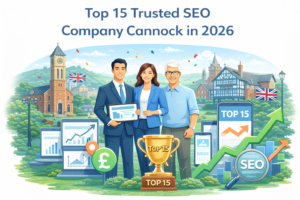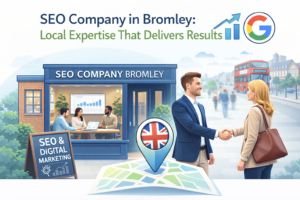Top Rated Ecommerce SEO Agency
Transform your online store’s visibility and revenue with Mavenj SEO’s specialized ecommerce SEO services. We help Shopify, WooCommerce or Magento. Custom ecommerce stores dominate search results.
Fill your details to get started!
Truested By










Why Ecommerce Seo Is Essential For Online Stores
In the competitive world of online retail, organic search represents the most cost-effective. That sustainable customer acquisition channel available. When potential buyers search for products you sell. Your store must appear prominently in search results—otherwise. You’re surrendering sales to competitors who invested in SEO.
The ecommerce landscape has become increasingly crowded. New stores launching daily & established retailers expanding their digital presence. Without strategic SEO for ecommerce websites. Even stores with exceptional products & competitive pricing remain invisible to the vast majority of potential customers.

Comprehensive Ecommerce SEO Services
Technical Ecommerce SEO & Site Architecture
We optimize your store’s technical foundation including site speed and Core Web Vitals. Technical excellence ensures search engines can efficiently. Seamless experiences that convert visitors into customers.
Product Page Optimization
Transform individual product pages into conversion-focused landing pages that rank well and drive sales. Our ecommerce SEO experts optimize product titles. and descriptions with strategic keywords or all. That distributes authority throughout your catalog.
Category Page Strategy
Develop category and collection pages that rank for broad. High-volume search terms while effectively showcasing products. We create SEO-optimized category descriptions Or strategic filtering.
WooCommerce SEO Services
Expert optimization for WordPress-powered WooCommerce stores leveraging. Our WooCommerce SEO services encompass plugin optimization. WordPress content capabilities, and technical configurations specific to WooCommerce architecture.
Magento SEO Services
Advanced optimization for enterprise Magento stores handling complex catalogs and high transaction volumes. Enterprise-level content strategies, and custom development for SEO enhancements when needed.
Why Choose Mavenj SEO For Ecommerce Seo Company
Your Partner in Medical Practice Growth
Specialized Ecommerce SEO Services
Mavenj SEO specializes exclusively in ecommerce SEO services, understanding product catalog challenges, commercial intent keywords, and conversion rates. We drive significant revenue growth for online retailers across fashion, electronics, home, beauty, sports, and niche products.
Ecommerce Requires Unique SEO Strategies
Unlike generalist agencies, we know ecommerce needs specialized strategies. Product page optimization, category structures, filtering, faceted navigation, and conversion optimization all require deep knowledge of shopping behavior, cart abandonment psychology, and the balance between SEO and user experience.
Ecommerce SEO Focused on Revenue Growth
Our ecommerce SEO experts combine technical proficiency with online retail dynamics and conversion optimization. Mavenj SEO attracts ready-to-buy customers, optimizes the purchase path, and ties SEO activities to revenue, ROI, keyword improvements, and organic sales performance.
Our Proven Ecommerce Seo Process
Comprehensive Store Audit & Competitive Analysis
We begin with thorough evaluation of your ecommerce site's current performance including technical SEO health or product. This audit identifies quick wins, major opportunities, and technical barriers preventing optimal performance.
Custom Ecommerce SEO Strategy Development
Based on audit findings and your business goals. We develop a tailored roadmap including priority keyword targeting for products or categories. Your strategy includes clear timelines, resource requirements, and projected outcomes.
Strategic Implementation & Optimization
Our team executes your SEO strategy across all critical areas including technical improvements for speed and crawlability. We work efficiently to implement changes while minimizing disruption to your operations and maintaining site stability during busy shopping periods.
Continuous Monitoring & Performance Refinement
Ecommerce SEO requires ongoing optimization as product catalogs evolve, seasons change, and competitors adjust strategies. We continuously monitor keyword rankings. Identify new keyword opportunities, and refine strategies based on performance data and business feedback.
Contact Us to Learn How SEO Can Transform Your Ecommerce Marketing
Benefits Of Professional Ecommerce Seo Agency Services
Transform Your Online Store's Performance
Increased Qualified Traffic & Revenue allows you to attract customers actively searching for products you sell with high commerciality. Intent while targeting long-tail product keywords. That converts exceptionally well. You capture traffic across the entire buyer journey. Build sustainable visibility without ongoing ad spend.
Improved Conversion Rates come from optimizing product pages or reducing friction. Competitive Market Advantage enables you to outrank competitors. Capture market share & build strong domain authority. Superior ROI Compared to Paid Advertising creates lasting assets. Reduces acquisition costs, and improves profit margins.
We're The Perfect Fit For Your Ecommerce Business
Specialized Expertise Across All Ecommerce Platforms
We understand that every ecommerce platform has unique capabilities, limitations, and optimization requirements. Whether you’re running a Shopify store, WooCommerce site, Magento enterprise platform or BigCommerce shop, or custom-built ecommerce solution. Our team has the platform-specific expertise to maximize your SEO performance.
We’re not just SEO technicians—we’re strategic partners. Who understands ecommerce business models. Profit margins, customer lifetime value, and the metrics. That drives sustainable growth. Our team stays current with ecommerce trends or platform updates. Shifting consumer behaviors, ensuring your SEO strategy evolves with the market.

Your Trusted Ecommerce SEO Partner
Built on Results, Transparency, and Partnership
Trust is essential in any business relationship. We earn yours through consistent results or transparent communication. Every ecommerce client receives dedicated account management. Detailed performance reporting with clear metrics, direct access to the strategists working on your account.
When you partner with us, you gain a team that’s as invested in your success as you are in serving your customers. We measure our achievements by your growth. Also increased organic revenue, improved conversion rates, expanded market share. The sustainable competitive advantages. That comes from dominant search visibility in your product categories.
Stop Losing Sales to Competitors Who Rank Higher
Transform Search Visibility Into Enrollment Success

Your Trusted SEO Partner Across Diverse Industries
We have expertise in the development of customised SEO services for various industries. Whatever industry you operate in, Mavenj SEO builds a campaign that your customers will feel, and the search engines will be on your side
B2B SEO
SEO for Jewelers
SEO for hotel
SEO for electrician
Client Testimonials

Sam Ansari
U.S.A

“Excellent team with expertise in Digital Marketing. Understanding the underlying problem and coming up with a customized solution for the business is what they do best.”

Ehtasham Alam
India

“What I love about MavenjSEO is their commitment to speed, design and innovation. It is important to be on top of search results and that's exactly what they delivered along with managing our social.”

Sadiya Roohee
U.A.E

“MavenjSEO or I would like to call them "Mavengers"! They have nailed it every time we've requested their support for our business. Accurate service for marketing needs, boosts sales, quick and frictionless”
Frequently Asked Question
What are ecommerce SEO services and how do they differ from regular SEO?
Ecommerce SEO means tweaking online shops so they show up better in searches, bring in real buyers, get more clicks. General SEO pushes blog posts or guides; this one’s different – it zeroes in on product pages, how categories are set up, site speed for big inventories. Instead of broad terms, it picks keywords people use when ready to buy stuff. Experts add special code – like product details in search results – to stand out. It tackles issues like nearly identical item descriptions, keeping things fresh when stock runs low. Platforms like Shopify limit what you can do – that shapes the approach taken. Traffic matters less than actual sales here.
How long does it take to see results from ecommerce digital marketing and SEO?
Most web shops start noticing real changes after about 3 to 6 months once they use full-on ecommerce SEO, while bigger sales boosts usually show up around half a year to a full year in. Early signs tend to be better positions for brand terms and specific product phrases, more unpaid visitors landing on collection or item pages, also rising presence in search results tied to buying stuff. How fast this happens relies on things like how strong your website’s reputation is right now, its tech shape, how tough the market is for what you sell, how big your inventory is plus how good your descriptions are, along with how quickly you roll out fixes and what effort you put in. Mavenj SEO sends updates every month showing where your keywords stand, how much natural traffic grows, shifts in conversion numbers, and which sales came from SEO – so you actually see movement early. While ads only work when you’re paying, SEO gains keep stacking up, getting stronger the longer it runs.
How much do ecommerce SEO services typically cost?
Ecommerce SEO agency prices usually sit between $2,000 and over $15,000 monthly – it really depends on how big your store is, how messy the product list gets, which niche you’re in, what tech setup runs behind it, plus whatever shape your site’s currently in. Tiny shops selling just a few things often spend less; meanwhile, huge brands juggling tons of products in tough markets need deeper pockets for full-scale campaigns. Some teams also charge by the job if you only want help with moves like switching platforms, fixing backend issues, or building new pages. What matters most? Getting more back than you put in – solid SEO work tends to pay off fast, bringing returns of 3x to 5x within twelve months as unpaid traffic grows. While ads keep costing – and sometimes cost more over time – SEO effort piles up into lasting results, needing fewer bucks later down the road after rankings lock in.
What makes Shopify SEO services different from other platform optimization?
Getting Shopify SEO right means really knowing how the system works – its quirks, what it can do, but also where it falls short. The setup comes with tech hurdles such as fixed URL formats, tricky redirects, and themes that slow pages down. Apps might boost features yet drag performance if picked wrong. On top of this, Shopify auto-adds canonical tags while churning out code that sometimes messes up search rankings. Still, solid Shopify SEO makes use of its perks: sites look good on phones by default, blogs fit smoothly into the layout, adding structured data is a breeze, plus plenty of helpful tools live inside the app store. To win at optimization here, you’ve got to know which strategies click within these boundaries, tell useful apps from harmful ones, then find clever fixes when stuck without direct robots.txt edits or deep server tweaks others get easily.
Do WooCommerce SEO services offer advantages over other platforms?
WooCommerce SEO works well because it’s built on WordPress – giving you tons of room to tweak things your way. You get full say over how your pages are set up and what links look like, plus a huge range of SEO add-ons at your fingertips; customizing designs or backend code isn’t an issue either. Publishing blog posts is smooth, which helps with content reach, while deeper tech-level improvements stay within reach. Still, bigger product lists can slow things down unless tuned right, and some plugins might clash – hurting rankings if ignored. Your host matters more here: poor servers drag loading times into the ditch. Updates don’t stop coming – you’ve got to keep up just to stay stable. All this freedom means top-tier results when handled by someone who knows their stuff, though setting it up beats anything automated from closed systems such as Shopify.
When should an online store invest in Magento SEO services?
Magento SEO works well for big online shops – especially those running huge inventories beyond 10k products. Stores managing multiple locations across regions also benefit since it handles varied branding needs. If you’re dealing with B2B features that go deep, this platform keeps up through tailored setups. Custom integrations? It supports complex backend demands without breaking stride. Its structure gives full grip on technical details, helpful for fine-tuning search performance. You get smart URL handling along with smooth redirects when pages shift. Organizing items by categories or specs becomes easier thanks to flexible labeling tools. Need to serve customers in different languages or currencies? That’s built in. Traffic spikes won’t crash it – it scales fast under pressure. Still, using Magento isn’t simple; it takes skilled people and steady upkeep. For smaller sites, the effort might outweigh gains. A solid SEO partner checks if all these powers make sense for your case – or points you toward something lighter.
How do you measure ROI from ecommerce SEO services?
Figuring out if your ecommerce SEO is worth it means watching numbers linked to sales and profit – like more visitors finding your product or category pages through search engines. Instead of just “and,” think about how higher spots on results for money-making keywords matter. You’ll want to check what share of those visitors actually buy something. Also, look at how much cash comes in specifically from people who found you organically. Another clue? The typical size of orders from these users tends to tell a story. Even better: seeing how much one such customer brings over their whole shopping life with you counts too. With sharper tools, you can tie certain search words and page visits straight to completed purchases – that way, math gets real accurate. Rather than assuming, we measure how cheaply organic traffic grabs buyers compared to paying non-stop for ads. When you climb ranks for valuable searches, each jump adds up financially. Plus, there’s future gain baked into every optimized page – it doesn’t vanish next month. A lot of shops start profiting off this effort between half a year and a full year in. As time rolls on – and visibility grows – the payoff speeds up. While paid clicks die once funding dries up, good SEO keeps working like stored energy, delivering wins far beyond the initial grind.
Can small online stores compete with major retailers through SEO?
Absolutely. Strategic SEO for ecommerce websites allows small stores to compete effectively by focusing on specific product niches where major retailers underinvest, targeting long-tail keywords with lower competition but high conversion rates, providing superior product content.Teaching buyers helps them make smarter choices, while real brand tales create strong bonds – these things spark trust. Big shops usually fail here because their messages feel empty, decisions take forever, and reaching particular groups is a constant challenge. Smaller spots move fast, know their stuff deep, treat people like individuals, and talk in ways that sound human – not corporate – which keeps customers coming back. A lot of thriving mini online brands earn serious cash without ads, just by ranking well on Google through focusing hard on narrow markets where their knowledge stands out from big players.
What's the most important factor for ecommerce SEO success?
Good product pages are key when it comes to online store SEO – better content usually means better rankings and more sales. Instead of just listing features, top SEO experts write fresh, engaging descriptions while weaving in keywords naturally; they also use sharp images and videos built for search engines. Alongside that, detailed specs give shoppers what they need to decide quickly. Real feedback from buyers builds confidence, so having genuine reviews makes a difference. Clear buttons that guide users – and signs like secure checkout badges – help push them forward. Linking similar items keeps people browsing longer. Sure, fast loading speeds, clean code, phone-friendly design, and links from other sites count too – but none of it matters much if the actual product presentation falls flat or leaves questions unanswered. When everything works side by side – tech setup, useful info, smooth navigation, and smart nudges toward buying – that’s how stores turn visits into steady income.
Should I focus on ecommerce SEO or paid advertising for my online store?
The top online shops use two kinds of digital marketing – smartly mixed – to get ahead. Paid ads bring quick visitors, great when launching items, pushing holiday deals, entering fresh markets, or staying seen for tough search terms. But ad spending never stops – and usually climbs as more brands fight for space. On the flip side, SEO grows steady traffic without paying per click, gains power over time as trust builds, cuts down on how much you spend to grab each buyer, and forms real brand worth that gets stronger. Best move? Run ads now for fast sales, while also growing your organic reach for bigger wins later. Once organic results get better, shops slowly move money from ads to SEO – cutting expenses without hurting sales. Begin using both methods, track results carefully, then adjust spending depending on what works best for your business and how fast you’re growing.





